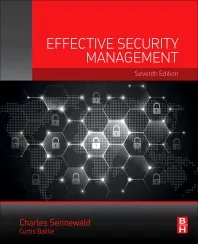CSO roundtable of ASIS International releases survey and white paper on enterprise security risk management
To demonstrate the level of industry’s understanding and adoption of enterprise security risk management (ESRM), the CSO Roundtable of ASIS International, a membership group of the senior-most executives from the world’s largest organizations, has released the results of a ESRM survey of its members and of the ASIS membership.
While enterprise risk management (ERM) looks at the universe of risks—financial, strategic, accidental and so on—that an organization faces, it often does not take into account risks such as brand protection, supply chain management or even physical and IT security. ESRM exists to ensure that these risks are properly considered and accepted.
The survey, conducted in fall 2009, asked for information about what risks were the most challenging, where organizational support for ESRM initiatives came from, which business elements were included, what security’s role in the process is, who has ultimate responsibility for risk, and other benchmarking questions. More than 80 CSOs, and more than 200 other ASIS members from around the world, responded to the survey.
“We learned that traditional security issues are rarely the ones that keep security professionals awake at night; instead, risks such as database theft, network failure and economic problems are top concerns,” said Timothy L. Williams, CPP, director of global security for Caterpillar and a member of the CSO Roundtable Advisory Board. “We discovered that most CSOs and, indeed, nearly half of non-CSOs, are already deeply involved with evaluating and mitigating non-security risks in their organizations.”
Survey results indicate that the vast majority of security professionals believe that excellent business management, leadership and communication skills—not security expertise—are the traits that will lead to success in ESRM. CSOs reported that the greatest non-security risk they face is the downturn of the economy, followed by business issues such as competition and regulatory pressures. More than half of the CSOs surveyed said they and their security departments were involved in researching, prioritizing, mitigating or evaluating these non-security risks.
The CSO Roundtable followed up the survey by interviewing 11 senior security executives from some of the world’s largest companies who have first-hand experience in planning and executing ESRM initiatives. These interviews examined how ESRM projects came about; where support came from; what the challenges were to implementation and how these were overcome; and what the outcome has been, not only for the organization but for the security professional.
“The interviews were remarkable in revealing that not only did these organizations end up with better, more efficient ways of assessing and mitigating risk holistically, but the executives found themselves with vastly increased understanding of their businesses,” Williams said. “This new appreciation for the inner workings of the business is really what has helped make them more successful and respected partners in the C-suite.”
The white paper, “Enterprise Security: How Great Risks Lead to Great Deeds,” is available at www.asisonline.org.
Looking for a reprint of this article?
From high-res PDFs to custom plaques, order your copy today!






